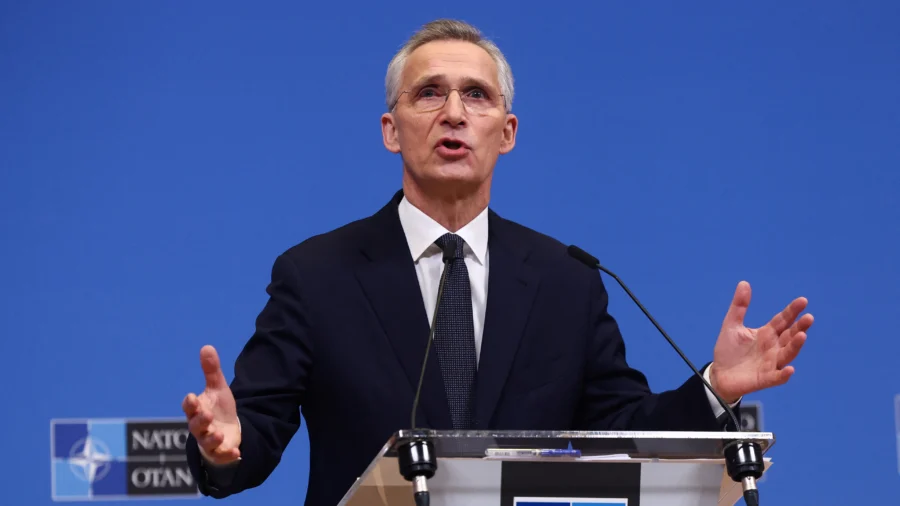NATO said on Feb. 14 that Europe was meeting an alliance spending target and the United States needed allies. NATO’s statement followed earlier remarks by former U.S. President Donald Trump, wherein he suggested that Washington might not protect countries that did not spend enough.
NATO’s European states are poised to invest a combined total of $380 billion in defense this year. This will amount to spending an estimated 2 percent of GDP in 2024 as a whole, marking a 0.15 percent increase from the previous year, according to NATO Secretary-General Jens Stoltenberg.
The former president staunchly remarked on Feb. 10 that any NATO allies who did not spend enough should inadvertently be at Russia’s mercy in the event of a conflict, implying that non-payment should result in a lack of protection.
At present, the 31 allies have committed to the defense spending target of 2 percent of their output, however not all have done so individually.
“I expect 18 allies to spend 2 percent of their GDP on defense this year,” Stoltenberg told a news conference in Brussels.
The Secretary-General added that overall military spending was set for another record year as the Russia-Ukraine conflict is entering its third year, exceeding last year’s figures, in which eleven NATO members were expected to reach the agreed target.
Mr. Stoltenberg retorted to questions by journalists over Mr. Trump’s candid remarks on the issue, saying the U.S. is fully aware of the importance of NATO’s contribution to its own security.
“The United States have never fought a war alone,” before heading to a NATO ministers’ meeting.
“The criticism we hear is not about NATO, it is about NATO allies not spending enough on NATO,” he added, noting the recent increase in military spending by European allies served as a testament that the message was understood.
Protecting Europe
With a second Trump term appearing likely, and amid disagreements in Washington over whether to pass a $95 billion military aid package for Ukraine and other allies, NATO’s main focus is directed towards maintaining the alliance’s military capability and protecting Europe.
Berlin is set to meet the 2 percent target for the first time since the end of the Cold War, with a budget allocated of nearly $77 billion for defense spending this year through regular and special budget outlays. However, it refrained from divulging the total amount of its defense spending.
This could be followed by France, the bloc’s only nuclear power, which has allocated over $400 billion by 2030, which indicates a rapid increase in defense spending, as well as being ahead of its projected 2 percent 2025 GDP target, which reportedly could come into effect earlier than planned.
According to NATO diplomats who spoke on condition of anonymity, implementation of NATO’s new strategy would require further boosting of European defense spending, in addition to addressing other issues pertaining to strong U.S. interest, including China and the Indo-Pacific, and what they referred to as careful handling of Trump.
One said the approach would be a “combination of flattery and a firm hand.”
The annexation of the Crimean Peninsula, as well as the advancement of Russian forces in the Donbas region in eastern Ukraine in 2014, has prompted NATO members to gradually increase their defense spending, which led to an agreement to realize the goal of at least 2 percent of GDP on military spending by member states at a summit in Wales the same year.
As of 2023, eleven member states are expected to have met the 2 percent target according to prior NATO estimates. This includes Poland, the United States, Greece, Estonia, Lithuania, Finland, Romania, Hungary, Latvia, Britain and Slovakia.
Reuters contributed to this article.


